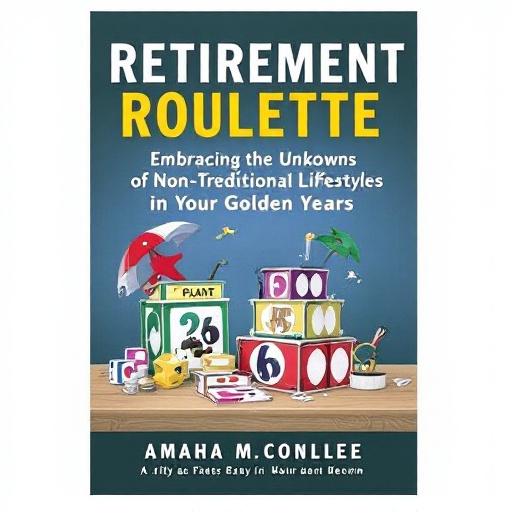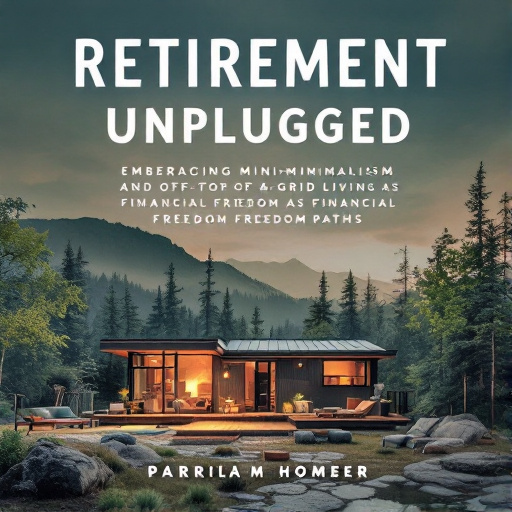Featured Articles
- "Beyond Savings: How Gardening and Hobbies Can Transform Your Retirement Plans"
- Reimagining Retirement: How Virtual Reality Could Transform Senior Living and Financial Independence
- "Rethinking Retirement: How Eco-Friendly Living Is Shaping Future Financial Planning"
- Retire in Style: Exploring the Rise of Sustainable Living Communities for Seniors
- "Retirement Reimagined: How Eco-Conscious Living is Shaping Future Financial Landscapes"
"Rethinking Retirement: How Eco-Friendly Living Is Shaping Future Financial Planning"
"Rethinking Retirement: How Eco-Friendly Living Is Shaping Future Financial Planning"
As the world grapples with environmental challenges, a growing number of individuals are reshaping their retirement strategies to align with eco-friendly living. This article delves into how sustainable practices are influencing financial planning for retirement and the innovative approaches that people are taking.
Shifting Paradigms: Understanding the Eco-Driven Retirement Movement
Retirement used to be about accumulating wealth as you aged—hitting that magic number in your savings account and sailing into the sunset. But what if the sunset you're sailing towards is marred by pollution and a climate crisis? According to a 2021 report from the World Economic Forum, 75% of millennials and Gen Z are concerned about climate change. This concern influences not just their everyday choices but also how they think about retirement.
The Green Retirement: A Case Study
Meet Jeff, a 35-year-old financial planner who has been saving for retirement since he was in his early twenties. Instead of splurging on lavish vacations or brand-new cars, Jeff decided to invest in solar panels for his home. “I’m not just saving for retirement; I’m making a statement about the world I want to live in,” he says. This investment led to an estimated 80% reduction in his energy bills, and he’s now more self-sufficient than ever.
Financial Savvy Goes Hand in Hand with Sustainability
As Jeff’s story illustrates, integrating eco-friendly choices into retirement planning isn’t just about saving the planet; it’s also about financial savvy. A 2019 survey by the National Association of Realtors found that 77% of homebuyers consider energy-efficient features as key when choosing a home. This trend suggests that green features not only reduce long-term costs but also improve property value.
Statistics Speak: The Growing Demand for Sustainable Investments
Eco-friendly investments are on the rise. According to the Global Sustainable Investment Alliance, global sustainable investment reached $35.3 trillion in 2020, a 15% increase from 2018. With millennials now becoming the largest segment of the population, their desire for sustainability will undoubtedly influence investment strategies worldwide.
How to Retire Sustainably: Tips and Strategies
Thinking about eco-friendly retirement planning? Here are some actionable steps to consider:
- Invest in Green Bonds: These bonds are specifically directed toward funding environmentally friendly projects.
- Engage in Community Solar Projects: Invest in community solar initiatives that allow you to benefit from renewable energy without installing solar panels on your property.
- Choose Sustainable Living Spaces: When selecting a retirement community or home, opt for those with green certifications.
- Educate Yourself: Learn about sustainability and maintain a diverse portfolio that reflects your eco-friendly values.
For the Younger Generations: Retirement Isn’t Just for Grandma and Grandpa
At 22, you might think retirement planning is far off, perhaps too far to even consider. But with the looming challenges of climate change and the economic realities of today’s world, young people now face a dual challenge: ensuring personal financial stability while advocating for environmental sustainability. It might sound overwhelming, yet making small changes today can pay off immensely in the long run.
The Role of Technology in Eco-Friendly Retirement
You might be surprised to find that technology can play a significant role in sustainable retirement planning. Smart home technologies, energy-efficient appliances, and electric vehicles are just some of the ways that technology can help you save on costs. The adoption of technology related to energy efficiency not only minimizes costs but supports a green lifestyle. As per a McKinsey report, intelligent energy management systems can help households reduce energy consumption by 20% on average.
Eco-Guru or Financial Wizard? The Ideal Retirement Planner
Imagine a retirement planner who’s young, hip, and read up on climate science during their college days. That’s the new financial advisor leading the charge for eco-friendly retirement planning. Financial planners are starting to create plans that focus not just on profitability but on the environmental impact of investments. People like Laura, a 29-year-old financial consultant from San Francisco, emphasizes that her clients want their money to "mean something." “It’s about aligning your values with your financial goals,” she says passionately.
Overcoming Challenges to Sustainable Retirement
Despite the myriad benefits, some people struggle with transitioning to eco-friendly retirement planning. Many view green investments as riskier, while others may not fully understand how to incorporate sustainability into their financial strategies. A 2021 survey by Fidelity revealed that 71% of investors are concerned that going green could hurt their returns. However, data from studies conducted by MSCI show no significant difference in performance between sustainable and traditional investments in the long run.
Power of Community: Forming Eco-Friendly Investment Groups
Pooling resources can amplify the impact of your investments. Eco-friendly investment groups are cropping up across communities, fostering dialogue and collaboration among like-minded individuals. Whether it’s through a local meetup or an online forum, fellow eco-conscious investors can provide insights, share strategies, and create collective buying power for sustainable projects.
Rethinking Retirement Funds: The Challenge of Traditional Investment Models
Traditional retirement vehicles, such as 401(k)s or IRAs, often lack options for sustainable investments. However, new “green” funds are popping up that allow retirees to align their financial goals with their values. A study by Morningstar found that, during economic downturns, sustainable funds often perform better than their traditional counterparts, giving further credence to the argument that responsible investing does not necessarily equate to lower returns.
Mindset Shift: From Retirement to Legacy
For many, retirement isn't just about financial security; it's about leaving a legacy. As a 60-year-old environmental activist put it, “I want my grandchildren to inherit not only my savings but a healthy planet.” This change in mindset carries weight when planning for retirement. Consider what kind of world you want to leave behind and how your financial decisions can reflect that vision.
Humor in Financial Planning: Don’t Take Yourself Too Seriously
Okay, let’s be real: retirement planning sounds like something only “adults” do. But who says adults can’t have fun? You might chuckle as you invite friends over for an “eco-friendly dinner party” where everyone brings a locally-sourced dish and discusses investment strategies over homemade kombucha. Turning planning into a social event lightens the mood while fostering an engaging dialogue on sustainability!
Building a Sustainable Future Together
With a wide range of options available for eco-friendly living and investing, it's clear that the future of retirement planning can be as green as we want it to be. Whether you're 16 or 70, understanding and implementing strategies for sustainable living not only helps the environment but also empowers you financially. As our planet faces its biggest challenges yet, the actions we take today can set the tone for our retirement and future generations to come.
Final Thoughts: Beyond Financial Gains
While financial stability is essential, it’s equally important to focus on values. Incorporating eco-friendly strategies in retirement planning opens up a spectrum of opportunities for a meaningful and impactful retirement. As you contemplate your future, remember that it’s not just about wealth accumulation but about the planet you wish to preserve for the generations yet to come.




